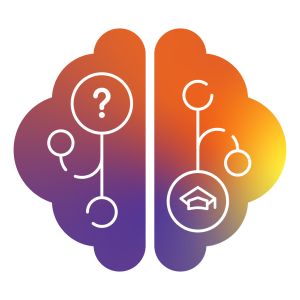Learner Reflections

Evidence across multiple studies supports reflective practice as a moderator for learners’ uncertainty tolerance development. Without guidance, however, some learners may focus on describing the scenarios in which they experienced uncertainty rather than critically reflecting on the uncertainty related to their learning and future professional role. The exercise below can be used to guide learners in reflecting on experiences of uncertainty; it is followed by some important considerations for educators when implementing reflective learning activities (adapted from Stephens et al., 2024).
Learner Exercise
Step 1. Ask learners to describe a scenario in which they or others experienced uncertainty.
Educator Tip: Health professions learners typically experience substantive uncertainties relating to learning, professional development, and the practice of their future profession (e.g., uncertainties inherent in clinical practice). Some learners may be able to identify scenarios containing uncertainty without prompting. However, example scenarios may help to develop learners’ skills for identifying uncertainties in learning and clinical care. They could include:
Expert management of uncertainty Describe an occasion when you observed a supervising clinician responding to uncertainty. What were they uncertain about, and how did they respond to and manage the uncertainty?
Communication of uncertainty Describe an occasion when you or someone else communicated uncertainty (e.g., to a patient, fellow learner, supervisor). What was the uncertainty about (e.g., clinical care, learning, professionalism), and how did those involved in the conversation express and respond to the uncertainty?
Clinical care uncertainty Describe an occasion when you recognised uncertainty in clinical care (e.g., diagnosis, management, prognosis). Why was this scenario uncertain, and how did you recognise this?
Step 2. Give learners prompts for how to engage in critical reflection on uncertainty in order to build skills for adaptively managing uncertainty
Educator Tip: These prompts are designed to discover how learners respond to the uncertainty described in Step 1 and what can be learned from the scenario for future experiences with uncertainty. This step utilises a common framework for reflection, the what?, so what?, now what? approach (Academy of Medical Royal Colleges et al., n.d.), adapted to integrate the elements of uncertainty tolerance models.
- What responses did you exhibit or observe in others experiencing uncertainty in the scenario identified in Step 1? Consider thoughts, feelings, and actions.
- Given the context of the uncertainty, how effective were the responses that you or others took to manage it, and why?
- What did you learn from this scenario about managing uncertainty, and what might you do differently when faced with a similar scenario in the future?
Considerations for Educators
Consider how educators and educational institutions can optimise learner reflection on uncertainty. Some examples are given below.
Provide feedback to learners This may include individualised feedback when feasible or aggregated feedback where key learning points are relevant to the wider cohort. Feedback is valuable when it comes from trusted educators or mentors.
Ensure learners have repeated opportunities for reflection Ideally, reflection on uncertainty is incorporated throughout a unit or course of study. Learners may return to earlier reflections and consider how they have changed their approaches to managing uncertainty in light of learning, experience, and feedback.
Consider learner psychological safety Reflective learning should focus on learner development; therefore, summative reflections should typically be avoided, as they may lead to learners presenting idealised versions of events. To facilitate discussion of challenging or contentious topics, it may be appropriate to allow anonymised reflections and feedback.
Allow flexibility in the format of reflections Reflections can be handwritten, typed, audio or video recorded, or presented as visual art compositions. The key is for the chosen format to facilitate critical engagement with the uncertainty the learner experienced.
References
Academy of Medical Royal Colleges, UK Conference of Postgraduate Medical Deans, General Medical Council, & Medical Schools Council. (n.d.). The reflective practitioner: Guidance for doctors and medical students. General Medical Council. https://www.gmc-uk.org/-/media/documents/dc11703-pol-w-the-reflective-practioner-guidance-20210112_pdf-78479611.pdf
Stephens, G. C., Sarkar, M., & Lazarus, M. D. (2024). ‘I was uncertain, but I was acting on it’: A longitudinal qualitative study of medical students’ responses to uncertainty. Medical Education, 58(7), 869-879. https://doi.org/10.1111/medu.15269
Media Attributions
- Purple-Orange Brain © Kat Orgallo is licensed under a CC BY-NC (Attribution NonCommercial) license

